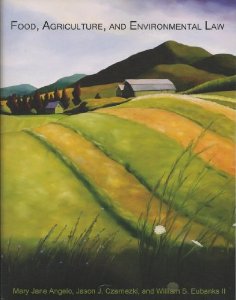Exploring Food, Agricultural, and Environmental Law and Policy Reforms
DOI:
https://doi.org/10.5304/jafscd.2014.042.003
Keywords:
Environmental Law, Law, PolicyAbstract
First paragraphs:
Books have played an important role in shaping the United States' food, agricultural, and environmental systems. One of the most influential is a1906 book entitled The Jungle written by Upton Sinclair that used investigative reporting to descriptively portray the working and living conditions endured by immigrants working in American meatpacking factories. Sinclair horrified readers and stimulated public outrage that led to political pressure to enact the Meat Inspection Act and the Pure Food and Drug Act, as well as establish the U.S. Food and Drug Administration. Another influential book, Silent Spring (1962) by Rachel Carson, led to stronger pesticide regulations and launched the environmental movement. More recent examples include Fast Food Nation: The Dark Side of the All-American Meal by Eric Schlosser (2001) and a series of writings by Michael Pollen (e.g., The Botany of Desire: A Plant's-Eye View of the World (2001) and The Omnivore's Dilemma: A Natural History of Four Meals (2006)). Both authors raised awareness about the associations between an increasingly industrialized food supply and obesity.
These literary pieces provide unique, descriptive food systems insights; however, individually or collectively, they do not provide a systematic approach to understanding the complex and dynamic set of laws, regulations, policies, and procedures established under global, federal, tribal, state, and local authority governing our food, agricultural, and environmental systems. As advocacy mounts for various reforms and research advances our understanding of the multifaceted opportunities and challenges for our current and future food, agricultural, and environmental systems, a need exists for a transdisciplinary examination of the historical and contemporary legal and political developments influencing these systems....Metrics

Downloads
Published
How to Cite
Issue
Section
Categories
License
Copyright (c) 2014 Sheila Fleischhacker

This work is licensed under a Creative Commons Attribution 4.0 International License.
The copyright to all content published in JAFSCD belongs to the author(s). It is licensed as CC BY 4.0. This license determines how you may reprint, copy, distribute, or otherwise share JAFSCD content.











